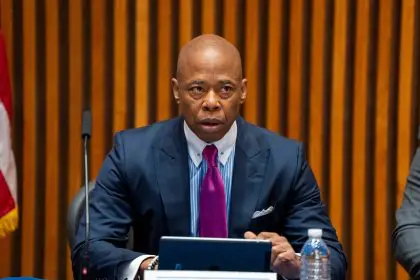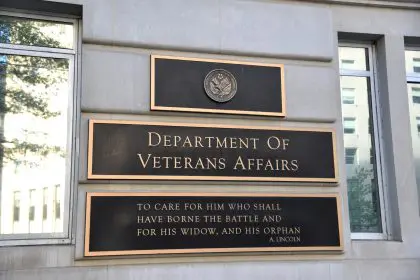A 15-year veteran of Allentown, Pennsylvania’s city government has stepped forward to challenge deep-rooted racial discrimination, filing a federal lawsuit that exposes concerning patterns of bias within local government operations. Deputy City Clerk Tawanna Whitehead’s legal action brings to light persistent issues that many professionals of color continue to face in government institutions.
The lawsuit, filed in the U.S. District Court for the Eastern District of Pennsylvania, details a work environment where racial hostility went unchecked despite multiple complaints and documented incidents. The Atlanta Black Star was able to obtain the complaint.
Whitehead’s experience mirrors challenges that continue to plague government institutions, where professional Black employees often face both subtle and overt discrimination despite years of dedicated service.
A pattern of institutional failure
The systemic nature of the discrimination becomes apparent through Whitehead’s documentation of repeated incidents over several years. Despite her professional standing and lengthy tenure, she encountered numerous instances of racial bias, including the casual use of slurs by high-ranking officials.
One particularly egregious incident occurred in 2015 when a high-ranking city official reportedly used the term “Sand Ni—er” in her presence. This slur was allegedly repeated in front of the city council president and her supervisor, Michael Hanlon, who later reported the incident to human resources.
The most troubling aspect of these encounters was not just their occurrence, but the institutional response — or lack thereof — when these incidents were reported. When Whitehead brought concerns to human resources, the department’s dismissive response highlighted a broader institutional problem. The HR department’s handling of the situation – telling her she wasn’t a victim – exemplifies how discrimination complaints are often minimized or ignored, forcing professional staff to work in hostile environments.
Escalating tensions reveal deeper issues
The situation reached a breaking point in September 2023 when confrontations with a city council member laid bare the extent of racial tensions within city hall. The councilwoman’s reported behavior — including making derogatory comments about Black community members during budget discussions and displaying open hostility toward Black Lives Matter activists — demonstrates how racial bias can affect policy decisions and resource allocation.
These incidents prompted the local NAACP chapter to step in, revealing that Whitehead’s experience was not isolated. Their investigation uncovered similar accounts from at least ten other employees, suggesting a pattern of discrimination that extends beyond individual incidents to affect the broader workplace culture.
Push for accountability faces resistance
In response to mounting pressure, the city council voted unanimously to launch an external investigation, committing $300,000 to uncover the full scope of racial discrimination within city hall. However, this effort faces opposition from Mayor Matt Tuerk, who cites procurement issues in an attempt to block the funding.
The investigation, led by retired FBI agent Scott Curtis, represents a crucial step toward accountability. However, the mayor’s resistance to funding the investigation raises questions about the administration’s commitment to addressing systemic racism within its ranks.
Moving toward institutional change
Whitehead’s lawsuit seeks more than just compensation for emotional distress; it aims to create lasting institutional change. The legal action requests permanent injunctions against discrimination and retaliation, along with the implementation of new policies to prevent future civil rights violations.
This case represents a crucial moment for Allentown and serves as a reminder that the fight against workplace discrimination continues, even in professional government settings. As the investigation unfolds, it highlights the ongoing need for vigilance and reform in public institutions.
The outcome of this case could set important precedents for how local governments handle discrimination complaints and protect employees’ rights. It also underscores the importance of supporting professionals who step forward to challenge systemic racism, ensuring their voices are heard and their experiences are properly addressed through formal channels.
















